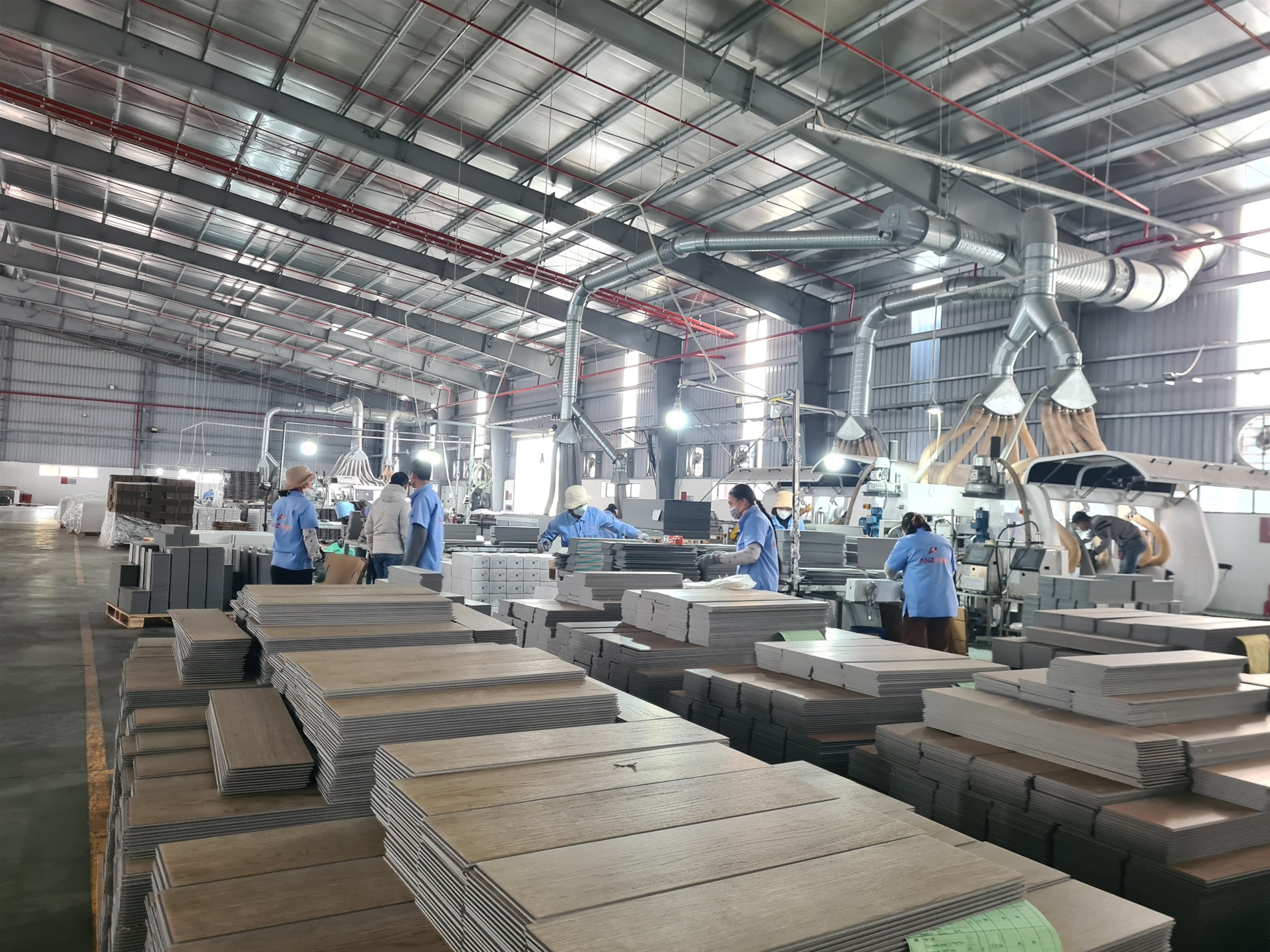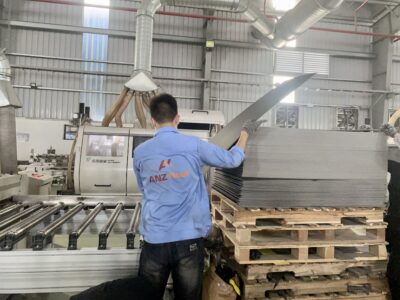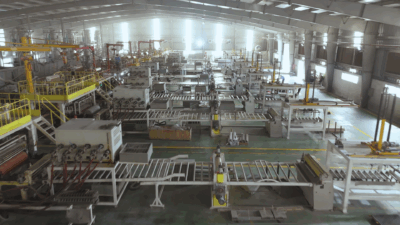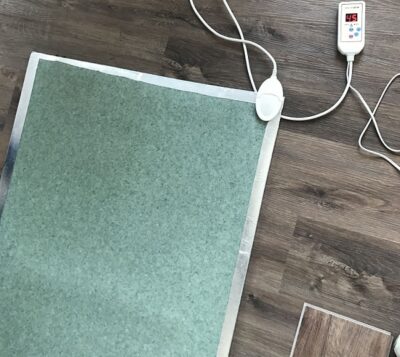Over the past decade, Vietnam SPC Flooring Industry has evolved from a young manufacturing base into a global leader in eco-friendly and sustainable flooring production. With growing awareness of climate change and environmental protection, sustainability has become more than a trend — it’s a business necessity. This article explores the sustainability journey of Vietnam SPC Flooring Industry, its achievements, and the innovative green practices shaping its future.

1. Understanding the Sustainability Journey of Vietnam SPC Flooring Industry
The SPC (Stone Plastic Composite) flooring sector in Vietnam began expanding rapidly around 2015, driven by exports to the US, Europe, and Asia-Pacific. Unlike traditional flooring materials, SPC is made from a mix of limestone powder and PVC resin — creating a durable, waterproof, and 100% recyclable core.
Many Vietnamese manufacturers, such as VN Ecofloor, have focused on integrating sustainable production methods:
-
Using low-VOC raw materials to reduce harmful emissions.
-
Installing solar panels and energy-efficient extrusion systems to minimize carbon footprint.
-
Recycling production waste and leftover SPC materials into new flooring cores.
These initiatives reflect Vietnam’s growing commitment to responsible manufacturing and align with international environmental standards.
2. Eco-Friendly Materials and Green Manufacturing
Vietnam’s SPC flooring factories are investing in environmentally responsible materials and production systems.
a. Recyclable SPC Core
The limestone-based SPC core is non-toxic, fire-retardant, and fully recyclable, helping reduce landfill waste.
Compared with laminate or hardwood flooring, SPC does not require trees for production, supporting forest conservation efforts.
b. Low Emission & VOC-Free Production
Modern SPC lines now use non-phthalate plasticizers and low-emission adhesives, ensuring compliance with European REACH and US EPA standards.
c. Energy Efficiency
Factories in Vietnam, especially in Hai Phong, Bac Ninh, and Dong Nai, are upgrading to energy-efficient extrusion lines that cut energy consumption by up to 30%.
Such efforts make Vietnam’s SPC flooring a preferred choice for eco-conscious importers and LEED-certified projects worldwide.
3. The Role of Technology in Sustainable SPC Production
Technological innovation plays a key role in the sustainability journey of Vietnam SPC Flooring Industry.
New digital printing and EIR (Embossed in Register) techniques help create realistic wood and stone effects without natural resource extraction.
Additionally, closed-loop water systems are now common in SPC factories, reducing water waste during cooling and cleaning processes.
Some advanced manufacturers are even integrating AI-driven production monitoring to control waste levels and optimize efficiency — combining sustainability with productivity.
4. Economic and Environmental Impact
Sustainability doesn’t just benefit the planet — it strengthens Vietnam’s economic position.
By 2025, Vietnam’s SPC flooring exports are projected to exceed $1.2 billion, making the country one of the world’s top eco-flooring hubs.
With global importers shifting away from high-carbon suppliers, Vietnam’s reputation as a sustainable production base continues to grow.
According to data from the Vietnam Timber and Forest Products Association (VIFOREST), many flooring factories are also obtaining ISO 14001 and FloorScore certifications, ensuring environmental compliance and international credibility.
5. Future Outlook: Vietnam’s Path to a Greener Flooring Industry
The next phase of Vietnam’s SPC flooring sustainability journey focuses on:
-
Expanding recycled material usage.
-
Promoting biodegradable packaging and eco-friendly logistics.
-
Collaborating with global brands for carbon-neutral supply chains.
As Vietnam continues to innovate, its SPC flooring industry is set to become a benchmark for sustainable manufacturing in Asia.
Conclusion
The sustainability journey of Vietnam SPC Flooring Industry reflects a powerful combination of innovation, responsibility, and long-term vision.
From renewable energy to recyclable cores, Vietnamese manufacturers are redefining what it means to produce high-quality and eco-friendly flooring.
As global demand for sustainable construction materials grows, Vietnam stands ready to lead — not only as a manufacturing hub but also as a model for green growth and environmental stewardship in the global flooring market.






